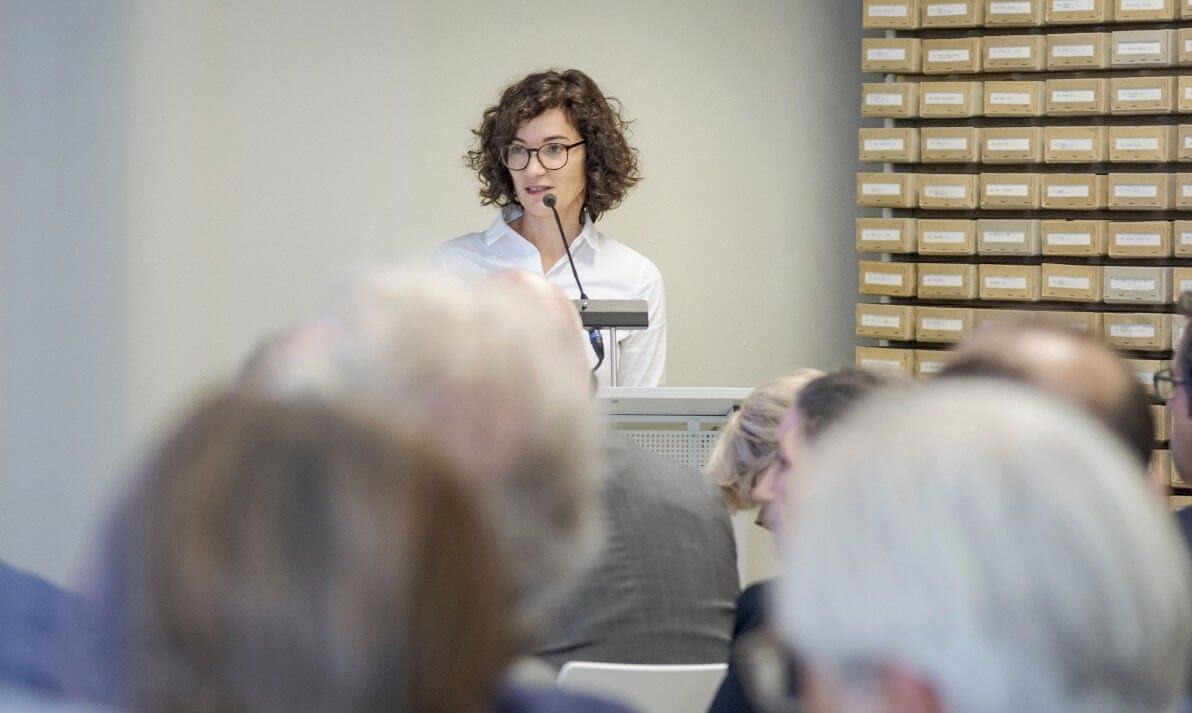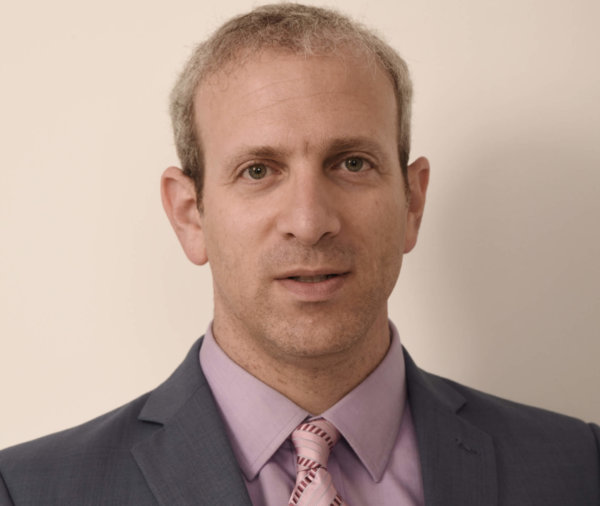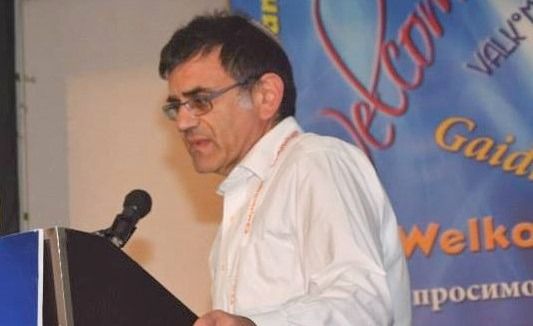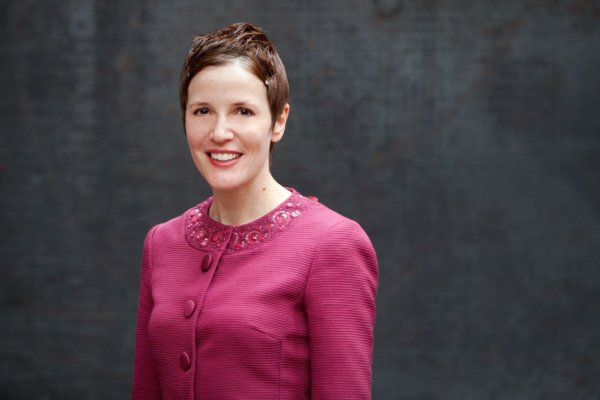Risks and opportunities of an online archive
Should millions of documents about the victims of Nazi persecution be freely available on the internet? Before the online archive went into development, it was the subject of intense debate at the Arolsen Archives. On the one hand, there was the need to make the documents that have been included on the UNESCO Memory of the World register available to as many people as possible worldwide. But wouldn’t an online archive remove Nazi documents from their historical context? And might publishing the documents in this way even violate personality rights and copyrights? The Arolsen Archives gave these questions careful consideration: most experts and, above all, the relatives of the victims feel that the opportunities afforded by an online archive are much greater than the risks involved.

»Our archive is an indispensable source of knowledge for society today. We must make it available online so that this knowledge can be accessed by younger generations too. The rights of the victims and their families to truth and information also has the highest priority for us.«
Floriane Azoulay, Director of the Arolsen Archives
The legal basis
The Arolsen Archives are not subject to national data protection directives, but to specific international provisions: the International Commission (IC) – which consists of government representatives from eleven member states – supervises the work of the institution on behalf of the former victims of persecution. Article 11 of the international treaty ratified by all the member states stipulates that the IC shall independently define the directives for the publication of personal data from the holdings of the Arolsen Archives. In 2017, the IC decided on a 25-year term for online publication. This means that all the documents from the archive are accessible – except for inquiries that are less than 25 years old.
“At last!”
What do the relatives and other interested parties say can now that they can research online? In the first week alone, more than 100000 people used the new online archive. Many of them took the opportunity to tell us about the experience in our social media channels. Users are unstintingly enthusiastic about the new possibilities:
»I thank everyone for this important information. I learned a little more about what happened to my grandfather. I saw his signature for the first time and I know that he was taken away very quickly because of what little effects he had with him. Bless everyone for this project.«
»At last! How many years have many of us who are interested in Nazi history been waiting for this? Thank you to everyone who has made this possible!«
»Unbelievable, I found things and names of my father’s side I didn’t know before! Very exiting!«
»My father never talked about the relatives he lost. So recovering even a name on a list is very important for us. These files add much more information. I am so appreciative of the efforts made in uploading this data.«
»I am shaking, here is a relative of mine, thanks to the archive @itsarolsen and @yadvashem for the hard work. I am crying.«
What the experts say
We have spoken to international Holocaust researchers, historians and data protection specialists and asked them the following questions:
What do you think of an online archive on the victims of Nazi persecution? What risks and opportunities do you see in the transition from analog to digital when working with archival material?

Arye Schreiber, Data Protection Officer and GDPR specialist
Promoting truth and justice
The Arolsen Archives make an enormous contribution to the pursuit of truth and justice. They should be disseminated far and wide and made increasingly accessible and available.
For years, the material in the Archives was inaccessible due to legal challenges, in particular privacy laws and copyright laws. But over time, it has become recognized that privacy laws intended to protect people’s dignity, and copyright laws intended to protect people’s property, must not obstruct publication of critical historical documents. Truth, justice and education, especially in the face of denial, avoidance, and ignorance, must be vigorously pursued. The Arolsen Archives serve the cause of dignity and the interests of the victims of the National Socialists by publication, not by restriction. Through the online Archives, the dissemination of these important documents can help honor the memory and dignity of the victims, support crucial Holocaust awareness and education, and promote justice and truth.

Dr. Tobias Herrmann, German Federal Archives
A fascinating means
Presenting digital archival materials online is a fascinating means of making central historical sources available to an almost unlimited number of users who can access the sources whenever they like from wherever they may happen to be.
Assertions and assumptions made on the basis of these digitized sources can be verified by anyone at any time, However, online presentation requires a thorough examination of the legal requirements, and the resources needed for the long-term storage and presentation of digitized archival materials are sometimes still underestimated.

Zvi Bernhardt, Deputy Director of Reference and Information services and of the Hall of Names, Yad Vashem World Holocaust Center
Increase transparency
The new Arolsen Archives online database published in partnership with Yad Vashem signifies the organization's goal to increase transparency and accessibility to information and documentation about the crimes and atrocities of the Nazi era.
The importance of uploading such a database online is not only to serve as a research tool, when previously the information could only be accessed offline, but for individuals seeking personal information about victims from their own family and who previously found it difficult or didn’t know where to go to access these documents. Now anyone anywhere can begin to research information and piece together the complex puzzle that is the Holocaust and the Second World War and perhaps begin to learn about the experiences of those persecuted.

Dan Stone, Professor of Modern History and Director of the Holocaust Research Institute at the University of London
Risks and benefits
In general, I would say that the risks are in many ways the same as the benefits.
In particular, as the search function improves, one might be able to find what one is looking for more quickly and accurately. However, in the process, one loses the element of serendipity that is so important to all historical research – i.e., when you happen to find something that you did not originally look for. The analogue search brings up material one didn’t know about and which takes one down new lines of inquiry. For the time being, the same is true of the rather clunky digital search, but I fear this may change in the future. The lack of contact with actual paper documents and their material reality is another problem; it is hard to gain a sense of what the documents are really like when viewing them on screen, and although that is unavoidable, it remains desirable for researchers to be able to access the original documents where possible.

Suzanne Brown-Fleming, Director of Visiting Scholar Programs at the United States Holocaust Memorial Museum
The global nature of the Holocaust
The size and scope of the Arolsen Archives collection staggers the imagination.
In tens of millions of documents, the holdings capture the Nazi and Axis attempt to remake all of Europe under the fascist juggernaut and the terrible, decades-long aftermath for families, institutions, and nations.
The Arolsen Archives highlight the global nature of the Holocaust, documenting refugees from across not only Europe but also North Africa, Asia, Latin America, and the Middle East. The Arolsen Archives have a unique ability to capture World War II and the Holocaust in a way that reaches far beyond Germany and even Europe to touch nearly every nation, religion, and ethnic group.

Alfred Weidinger, Director of the Museum of Fine Arts Leipzig
“On the internet, what’s done is done”
Alfred Weidinger is an art historian and the Director of the Museum of Fine Arts in Leipzig, one of Germany’s largest exhibition venues. When he heard that the Arolsen Archives and the Dachau Concentration Camp Memorial Site were making a collection of photographs of concentration camp survivors available for the “Coding da Vinci” culture hackathon, he criticized the use of this data on Twitter. We talked to Mr. Weidinger about his views on the publication of cultural data from the Nazi era.
Mr. Weidinger, why do you disapprove of the photos and metadata being made available for use at a hackathon?
Firstly, I am concerned that personal and private information about victims of the Holocaust is being used inappropriately. Secondly, it is a question of photographers’ copyrights. Photo rights do not expire until 70 years after the photographer’s death. So the copyright is still in force in many cases – not to mention the personality rights of the victims depicted on the photos. When they made their photos available all those years ago, they didn’t do so in order for some app to be developed, the use of which it may not even be possible to control.
We have just published more than 13 million of our documents on Nazi persecution in an online archive because we want to make this part of the world’s documentary heritage accessible to all. What do you think about this?
I think that’s just as bad. As soon as the documents and the information they contain are freely available on the internet, anyone can do whatever they like with them. You can ask the users to click on declarations that are as watertight as you like beforehand, and you can take criminal action afterwards – but once something has happened on the internet, you can’t turn the clock back: what’s done is done. You didn’t take any steps beforehand to check which personal data and photos you were allowed to publish or whether you were allowed to publish them at all, you didn’t even check with the descendants. No, that shows a complete lack of respect for the victims.
You have spent many years working to make art accessible to all. Why should it be any different when it comes to our documents?
Don’t get me wrong: I am very much in favor of making these documents accessible to researchers or teachers so they can use them in their work. Or to anyone else who has good reason to work with the documents, for that matter. If they are evidence of the Holocaust, then everyone should know about it. But it is important to deal with them sensitively. You need to retain control over the data. I repeat: this is primarily about aspects of copyright and personality rights, and as far as I am concerned, these are more important than the right to information in this case. If you want to put the data on the internet, you must talk to the photographers and to the people concerned or their descendants. This is something we encounter in the art world, too, with every work of art which changed hands during the Nazi period and beyond. In cases of this kind, we have to check the provenance and find out whether the works of art were seized in connection with Nazi persecution or were stolen during the war. If so, we cannot simply use them and exhibit them without further comment.
The most important questions in relation to the online archive
One of the aims of the Arolsen Archives is to enable as many people as possible to access our collection of documents on Nazi persecution, which is the only one of its kind in the whole world. This is why the institution gradually began to make various small collections available in an online archive from 2015 onwards. This enabled the Arolsen Archives to reach out to people who were not aware of the institution and who know little about the various victim groups subjected to Nazi persecution.
Up until now, we have received inquiries on three million individual victims, but the Arolsen Archives hold information on 17.5 million people. That’s why the World Holocaust Remembrance Center, Yad Vashem, offered in 2018 to join us in developing a powerful platform, which would make it possible to provide user-friendly access to larger collections. Enabling documentation of the Holocaust and making this documentation available worldwide was particularly important to Yad Vashem. Launched in May 2019, this new online archive contains over 13 million documents – primarily the collections from concentration camps, penal institutions and ghettoes. Further collections will follow in the coming years.
The Arolsen Archives are not subject to national data protection directives, but to the provisions of the International Commission which decided that online publication with a 25 year term is appropriate.
The Arolsen Archives also comply with the data protection provisions of the EU General Data Protection Regulation (GDPR). These stipulate that the right to the protection of personal data must be examined with regard to its social functions and must be weighed up against other basic rights in accordance with the principle of proportionality. The processing of personal data for archival purposes (including the publication of the data) is permitted under certain conditions. “Recital 158” in particular is important for the online publication of documents from our archives:
“Public authorities or public or private bodies that hold records of public interest should be services which, pursuant to Union or Member State law, have a legal obligation to acquire, preserve, appraise, arrange, describe, communicate, promote, disseminate and provide access to records of enduring value for general public interest. Member States should also be authorized to provide for the further processing of personal data for archiving purposes, for example with a view to providing specific information related to the political behaviour under former totalitarian state regimes, genocide, crimes against humanity, in particular the Holocaust, or war crimes.”
Thus legislators have recognized that data related to Holocaust and genocide have a particular social relevance: their publication can support finding the truth and remembering the victims. On the basis of this Recital and in consultation with their data protection office, the Arolsen Archives derive their authorization to also make documents containing personal data available in the online archive.
If you, as a victim or relative, for example, do not agree to the disclosure of certain personal data for legitimate reasons, you can contact us, of course: just write an e-mail to digitalcollections@arolsen-archives.org.
Researchers, teachers and other interested parties are still welcome to come to Bad Arolsen to work in our archive. They can access the full database in the reading room and all the documents it contains. Holdings that have not yet been digitized are, of course, available in their original form at the Arolsen Archives. The specialist library also contains more than 10,000 publications.
The online archive itself contains detailed descriptions of the individual holdings: who created the documents, what were they used for, what information do they contain? In addition, we also provide the e-Guide, which contains carefully prepared, descriptive explanations of the documents. Individual documents in particular, i.e. index cards and forms containing information on individual victims of Nazi persecution, contain a lot of “hidden” information that can be decoded more easily with the help of the e-Guide. Stigmatization by the Nazis took many forms, including the categories to which the prisoners were assigned. This is explained in detail in the e-Guide.

